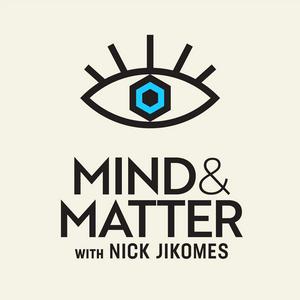Psychedelic Chemistry, Magic Mushrooms, Kratom, Gray Market Research Chemicals, Vape Shops | Andrew Chadeayne | 231
Send us a textEpisode Summary: Dr. Andrew Chadeayne discusses the chemistry of psilocybin and other psychedelics, their potential therapeutic applications, and the challenges of commercializing them in a shifting biotech market. The conversation delves into the complexities of magic mushroom composition, debunking myths like "lemon tekking," and uncovers the booming, unregulated alternative products industry, including kratom and synthetic psilocybin analogs sold in vape shops.About the guest: Andrew Chadeayne, PhD is a chemist who also holds a law degree, specializing in patent law. He is the founder and CEO of CaaMTech, a startup specializing in the development of novel psychedelic compounds. Chadeayne collaborates with academic labs to advance psychedelic science while navigating the commercial landscape.Discussion Points:Psilocybin is a prodrug converted to psilocin, but magic mushrooms contain other psychoactive molecules like beta-carbolines, which may enhance effects by inhibiting degradation.Chadeayne’s team develops psilocin prodrugs to shorten psychedelic trips, making clinical administration more manageable without altering effects.The "lemon tek" myth—that lemon juice converts psilocybin to psilocin—is false; it enhances absorption by extracting compounds, not altering chemistry.Magic mushroom bruising indicates psilocin degradation, as oxidized psilocin forms blue, inactive dimers.The multi-billion dollar alternative products industry sells kratom and synthetic psilocybin analogs, often mislabeled, in vape shops, raising safety and regulatory concerns.Kratom’s minor alkaloid, 7-hydroxymitragynine, is ~40x more potent than morphine, with no reported overdoses but high habit-forming potential.Non-hallucinogenic serotonin 2A agonists, like those developed by CaaMTech’s spinout, show promise for conditions like migraines without requiring a psychedelic trip.Related episode:M&M 71: Chemistry of Magic Mushrooms, DMT Analogues, Entourage Effects in Cannabis & Fungi, Novel Psychedelic Medicines, Psychedelic Startups | Andrew Chadeayne*Not medical advice.Support the showAll episodes, show notes, transcripts, and more at the M&M Substack Affiliates: KetoCitra—Ketone body BHB + potassium, calcium & magnesium, formulated with kidney health in mind. Use code MIND20 for 20% off any subscription (cancel anytime) Lumen device to optimize your metabolism for weight loss or athletic performance. Code MIND for 10% off Readwise: Organize and share what you read. 60 days FREE through link SiPhox Health—Affordable at-home blood testing. Key health markers, visualized & explained. Code TRIKOMES for a 20% discount. MASA Chips—delicious tortilla chips made from organic corn & grass-fed beef tallow. No seed oils or artificial ingredients. Code MIND for 20% off For all the ways you can support my efforts
